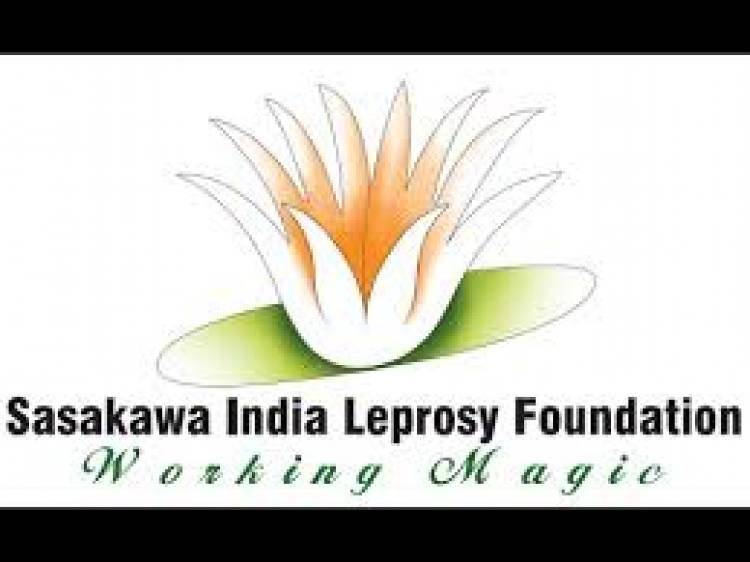Appeal to Hon’ble Prime Minister seeking amendment in 108 discriminatory laws against persons affected by Leprosy: S-ILF

·S-ILF carrying forward the initiative taken by Shri Harsh Vardhan, Hon’ble Health Minister of India to eradicate discriminatory laws against Leprosy patients
·Letter of appeal submitted to Prime Minister’s Office, Ministry of Law & Justice, and Ministry of Social Justice & Empowerment
·Appeal to immediate amend discriminatory laws against Leprosy patients in India
Sasakawa-India Leprosy Foundation(S-ILF), an organisation which works for the social and economic empowerment of leprosy affected persons and their families, supports the appeal sent by Shri Harsh Vardhan, Hon’ble Health Minister to Shri Ravishankar Prasad, Minister of Law & Justice, and Shri Thawwarchand Gehlot, Social Justice & Empowerment in August, 2019 seeking amendment in 108 discriminatory laws against persons affected by Leprosy.
Even though the disease is now fully curable, there still exist 108 discriminatory laws against persons affected by leprosy including 3 Union and 105 State laws even when it has fully curable by Multi- Drug Therapy (MDT). Shri Harsh Vardhan had also written letters to the state of Andhra Pradesh/Telangana, Karnataka, Tamil Nadu, Odisha, Goa/Daman & Diu, Kerala, Madhya Pradesh, Chattisgarh, Sikkim, Meghalaya, Haryana, West Bengal, Uttar Pradesh, Gujarat, Assam, Maharashtra, Bihar, Puducherry, Delhi, Rajasthan and North Eastern Region and Governor of J&K requesting them to earnestly look into the matter and direct all the concerned departments/ officers to work for the amendments of the existing discriminatory laws against persons affected by leprosy.
According to Dr. Vineeta Shanker, Executive Director, Sasakawa-India Leprosy Foundation (S-ILF): “Leprosy is a disease that which is entirely curable and among the least infectious of diseases. People need awareness and education about leprosy - that it is a bacterial disease which is easily treated with a simple regimen of antibiotics. It is indeed sad that there are 108 discriminatory laws against Leprosy patients in India. I urge the central and state governments to annul these laws which will help reduce stigma and ensure equal rights and treatment to those affected by leprosy. Repeal of these discriminatory laws will help convince people that there is no need to fear and exclude those who have had leprosy. Ending stigma will help them regain their dignity and self-esteem. .
For tackling leprosy ,India has , in recent years, intensified its effort to detect and bring all those affected within its medical outreach at early stages of the disease. It has introduced new and innovative approaches which include t. Leprosy Case Detection Campaign (LCDC) (specific for high endemic districts), Focussed Leprosy Campaign (for hot spots i.e., rural and urban areas), Special plan for case detection in hard to reach areas, ASHA based Surveillance for Leprosy Suspects (ABSULS) have contributed to early case detection. India has developed a vaccine for leprosy which it being tried and has introduced a prophylactic dose for those in close contact with new leprosy patients. Sparsh Leprosy Awareness Campaign (SLAC) has also been implemented to spread awareness, address the myths surrounding the disease and reduce stigma against persons affected by Leprosy in the community.
About Sasakawa-India Leprosy Foundation (S-ILF)
Instituted in November 2006, Sasakawa-India Leprosy Foundation (S-ILF) works towards mainstreaming persons affected by leprosy and their families through socio-economic empowerment, thereby fighting stigma and restoring dignity. Its areas of focus are:
·Providing technical support and micro grants for setting up micro enterprises for self-employment.
·Providing access to vocational training and higher education.
·Building capacity and training in livelihood activities for self and wage employment.
·Empowering leprosy affected persons to access Government welfare schemes so that they can move out of demeaning dependence on alms and donations.
·Raising awareness about leprosy among all sections of society to fight the stigma.
·Engaging with opinion and policy makers for the rights and inclusion of leprosy affected persons.


















